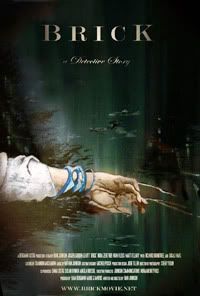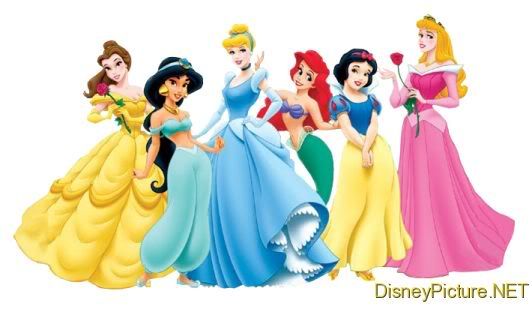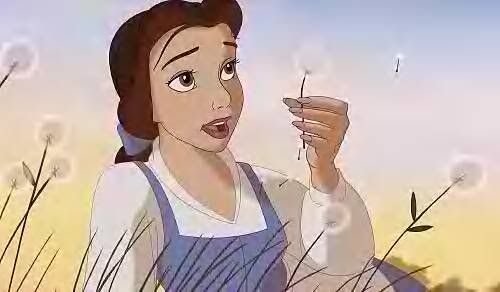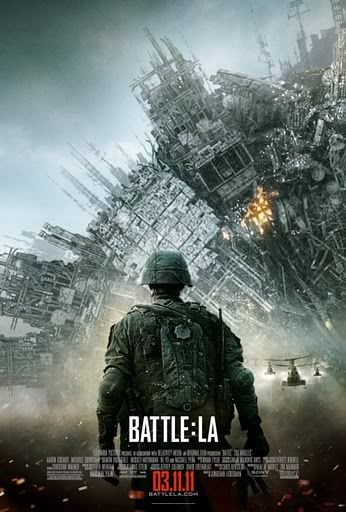The Horatio Alger myth abounded in films in the 1920s, showing the protagonists overcoming nearly impossible odds in order to become successful and triumphant in the end. While back then the characters often found economic and social success, nowadays films show just as much of that "everything will work out" mentality, almost to an annoying point.
Films tend to have happy endings. That's completely understandable, right? People don't generally want to leave a theater depressed and unsatisfied. But it seems nowadays that every film seems to have all its issues (no matter how big or difficult at the time) get wrapped up nicely in the last two or three scenes of the film. Personally, I'd like to see a little less of that.
It's fine to have the characters achieve their main objective for the most part, or find peace with something that's been troubling them, but I feel that a film having a bittersweet tone to it as the screen fades to black adds a lot more depth to the story. It makes the audience feel like the characters still exist after they leave the theater because they still have unfinished business or still have a goal to work for. If every little thing gets wrapped up with a little bow, then that's it. The character has found their perfect place in the world. They're completely content with their life and thus there is nothing more for them to do. A lot of kid's movies tend to do this, which I have no problem with. But films for the older audiences should challenge the audience member a bit more by leaving some unfinished business exist at the end of the film. Luckily, there have been a few examples of this somewhat recently:
1) 500 Days of Summer
I find that this film is generally considered a "chick flick." I disagree completely. Chick flicks tend to follow a very specific formula: boy meets girl, they fall for each other (often accidentally), they enjoy it for a while, a big secret comes out, the guy or girl or both is disgusted with the other, turns out it was all a huge misunderstanding, they reconnect, laugh it off, all is right with the world. I absolutely hate that formula. What 500 Days of Summer does differently, is it builds a pretty genuine picture of a relationship from the start. They have problems that a realistic and they get emotionally hurt in legitimate and understandable ways. The director gets you to love seeing them happy and thus has you rooting for them pretty early on in the film. Toward the end, however, is when the movie truly separates itself from the chick flick format.
They do not end up together.
That's the last thing you'd expect from a chick flick, right? Everything always works out for the couple, right? Not in 500 Days of Summer. Nope. Instead, we see Tom, our male protagonist, left on a bench from earlier in the film as the woman who has become his ultimate goal in life walks away, married to another man. This paints an extremely realistic picture of relationships and how they don't always work out, and since the director got us to like the couple so much early on, we feel his pain as she strolls out of his life. Then comes an ending that many people I know absolutely hate: Tom meets another woman. Sure, he and Summer made a cute couple and seemed truly happy for a while, but there are other women out there. I think people who dislike this ending are still longing for the "everything will turn out alright" feeling. Imagining that Tom will never love again because of his devotion to Summer and that he'll stop at nothing to get her back. What I think this ending does perfectly is keeps Tom alive as a character. Life goes on for him and there will be other women. This is just the start of the next chapter of his life. It makes the entire film more realistic and paints the characters as three dimensional people instead of cardboard cutouts destined to live happily ever after.

2) Memento
I have mentioned this film before in one of my previous blogs, but I come back to it here because it contains one of the best endings to a film I have ever seen. The entire film is based on the fact that Leonard Shelby is dead set on tracking down the man who murdered his wife, dealing with his extreme short-term memory loss at the same time. The entire film plays backwards, jumping back in time and having the scene play up to where the last one left off (very hard to explain here, as you can imagine). Because of this format, we are shown the ending at the very beginning, where Leonard has found his wife's killer and shoots him in cold blood. Doing this made me believe that the rest of the film would simply show how he came to discover the identity of the murderer, even with his debilitating disorder. By the end of the film (which doubles back to show the same scene at the beginning), I found it was something completely different. Leonard had found the killer already, years ago, but had since forgotten. A police officer had helped him solve the case and had seen the joy on his face when he killed the man. The officer then decided to help Leonard find another "killer", using him to track down a drug dealer who fit the description of the murderer. The big shocker of the ending though, is that Leonard realizes that he already killed the true criminal but decides to set up another scenario for himself to give him purpose in life. He plants evidence for himself, knowing that he will "solve" the mystery again and kill yet another innocent man. It changes our entire idea of Leonard upside down, painting him as a villain in his own way.
What is ingenious about this finale is how it makes the character exist beyond the film, just like in 500 Days of Summer. It gives us the feeling that we've only seen a fraction of this person's life and that the story continues from there, with Leonard starting another investigation that will ultimately lead to another and another. What could have simply been a murder mystery film told in an interestingly twisted way, instead turns into a dark, tragic story of a man's desperate search for satisfaction in a world that resets for him every few minutes.
While the happy ending has its time and place, I am encouraged by the fact that films like 500 Days of Summer and Memento don't seem satisfied with the quick fix and instead keep the audience asking questions long after the credits roll. It's a nice change of pace from the "happily ever after" mold that so many films still cater to.

















